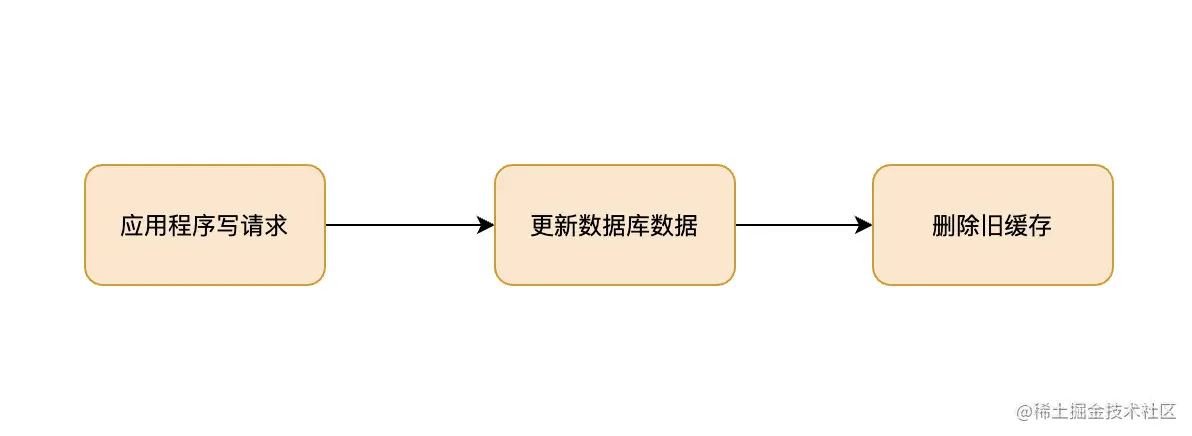当前位置:网站首页>Day06 list job
Day06 list job
2022-07-04 10:38:00 【She was your flaw】
list
One 、 List slice
1.1 section - Get some elements
The result of slicing is a list
grammar : list [ Start subscript : End subscript : step ]
explain :
Start subscript - Subscript value (0 Starting and -1 Anything at the beginning ); It is the starting point for determining the effective range of slices , You can get it.
: - Fixed writing
End subscript - Subscript value (0 Starting and -1 Anything at the beginning ); Determine the end point of the slice effective range , Can't get
step - 1) Determine the direction of the slice ( The direction corresponding to the step size must be consistent with the direction from start to end )
2) How to get elements ( Take one by one or jump )
Be careful : The valid range of slices is :[ Start subscript , End subscript )
games = [' Glory of Kings ', ' Game for Peace ', ' Protogod ', ' , ', ' Crossing the line of fire ', ' Tribal conflict ', ' Red Alert ', ' Contra ']
print(games[1:5:1]) # [' Game for Peace ', ' Protogod ', ' , ', ' Crossing the line of fire ']
print(games[1:-1:1]) # [' Game for Peace ', ' Protogod ', ' , ', ' Crossing the line of fire ', ' Tribal conflict ', ' Red Alert ']
print(games[3:-1:-1]) # []
print(games[-1:-5:1]) # []
print(games[0:-3:2]) # [' Glory of Kings ', ' Protogod ', ' Crossing the line of fire ']
print(games[-1:2:-2]) # [' Contra ', ' Tribal conflict ', ' , ']
print(games[2:-1:1]) # [ Protogod ', ' , ', ' Crossing the line of fire ', ' Tribal conflict ', ' Red Alert ']
1.2 Omit step size
list [ Start subscript : End subscript ] == [ Start subscript : End subscript :1]
Omit step size , Step size is 1
games = [' Glory of Kings ', ' Game for Peace ', ' Biochemical crisis ', ' Protogod ', ' , ', ' Crossing the line of fire ', ' Tribal conflict ', ' Red Alert ', ' Contra ']
print(games[2:-2]) # [' Protogod ', ' , ', ' Crossing the line of fire ', ' Tribal conflict ']
1.3 Omit start subscript
list [: End subscript : step ] / list [: End subscript ]
Omit start subscript , If the step size is positive , Start with the first element and take it back ; If the step size is negative , Start with the last element and move forward
games = [' Glory of Kings ', ' Game for Peace ', ' Biochemical crisis ', ' Protogod ', ' , ', ' Crossing the line of fire ', ' Tribal conflict ', ' Red Alert ', ' Contra ']
print(games[:-3]) # [' Glory of Kings ', ' Game for Peace ', ' Biochemical crisis ', ' Protogod ', ' , ', ' Crossing the line of fire ']
print(games[:3:-1]) # [' Contra ', ' Red Alert ', ' Tribal conflict ', ' Crossing the line of fire ', ' , ']
1.4 Omit the closing subscript
list [ Start subscript :: step ] # Omit the closing subscript
list [ Start subscript :] # Omit the end mark and step
Omit the closing subscript : If the step size is positive , Take the last element from the beginning subscript ; If the step size is negative , Take the first element from the starting subscript
games = [' Glory of Kings ', ' Game for Peace ', ' Biochemical crisis ', ' Protogod ', ' , ', ' Crossing the line of fire ', ' Tribal conflict ', ' Red Alert ', ' Contra ']
print(games[1:]) # [' Game for Peace ', ' Biochemical crisis ', ' Protogod ', ' , ', ' Crossing the line of fire ', ' Tribal conflict ', ' Red Alert ', ' Contra ']
print(games[3::2]) # [' Protogod ', ' Crossing the line of fire ', ' Red Alert ']
print(games[-2::-1]) # [' Red Alert ', ' Tribal conflict ', ' Crossing the line of fire ', ' , ', ' Protogod ', ' Biochemical crisis ', ' Game for Peace ', ' Glory of Kings ']
1.5 Together province
list [:: step ] # If the step size is positive , From the first element to the last element ; If the step size is negative , From the last element to the first element
list [:] # Take the whole list
print(games[::-1]) # [' Contra ', ' Red Alert ', ' Tribal conflict ', ' Crossing the line of fire ', ' , ', ' Protogod ', ' Biochemical crisis ', ' Game for Peace ', ' Glory of Kings ']
print(games[::2]) # [' Glory of Kings ', ' Biochemical crisis ', ' , ', ' Tribal conflict ', ' Contra ']
print(games[:]) # [' Glory of Kings ', ' Game for Peace ', ' Biochemical crisis ', ' Protogod ', ' , ', ' Crossing the line of fire ', ' Tribal conflict ', ' Red Alert ', ' Contra ']
print('abcdef'[1:])
print('abcdef'[::2])
Two 、 Deletion and modification
1.1 Delete - Delete list elements ( Reduce the number of list elements )
teleplays = [‘ List of reed {langya} ’, ‘ Daqin ’, ‘ The temptation of home ’, ‘ Kangxi Dynasty ’, ‘ Two Broke Girls ’, ‘ Strong-arm reaction ’, ‘ The big bang theory ’, ‘ Journey to the west ’]
- del list [ Subscript ] - Delete the element corresponding to the specified subscript in the list
Be careful : Subscript cannot be out of bounds
del teleplays[2]
print(teleplays) # [' List of reed {langya} ', ' Daqin ', ' Kangxi Dynasty ', ' Two Broke Girls ', ' Strong-arm reaction ', ' The big bang theory ', ' Journey to the west ']
del teleplays[-2]
print(teleplays) # [' List of reed {langya} ', ' Daqin ', ' Kangxi Dynasty ', ' Two Broke Girls ', ' Strong-arm reaction ', ' Journey to the west ']
- list .remove( Elements ) - Deletes the specified element in the list
Be careful :a. If the element does not exist , Will report a mistake
b. If the element has more than one , Delete only the first
teleplays.remove(' List of reed {langya} ')
print(teleplays) # [' Daqin ', ' Kangxi Dynasty ', ' Two Broke Girls ', ' Strong-arm reaction ', ' Journey to the west ']
teleplays.remove(' The white snake ') # ValueError: list.remove(x): x not in list
nums = [10, 20, 30, 20, 10, 20]
nums.remove(20)
print(nums) # [10, 30, 20, 10, 20]
- list . pop() - Take out the last element of the list
list .pop( Subscript ) - Take out the element corresponding to the specified subscript in the list
teleplays = [' List of reed {langya} ', ' Daqin ', ' The temptation of home ', ' Kangxi Dynasty ', ' Two Broke Girls ', ' Strong-arm reaction ', ' The big bang theory ', ' Journey to the west ']
del_item = teleplays.pop()
print(teleplays)
print(del_item) # Deleted ' Journey to the west '
4). list .clear() - List is empty
teleplays = [' List of reed {langya} ', ' Daqin ', ' The temptation of home ', ' Kangxi Dynasty ', ' Two Broke Girls ', ' Strong-arm reaction ', ' The big bang theory ', ' Journey to the west ']
teleplays.clear()
print(teleplays)
teleplays = [' List of reed {langya} ', ' Daqin ', ' The temptation of home ', ' Kangxi Dynasty ', ' Two Broke Girls ', ' Strong-arm reaction ', ' The big bang theory ', ' Journey to the west ']
print(teleplays)
teleplays = []
print(teleplays)
- Change - Modify the value of an element
list [ Subscript ] = value - Modify the element corresponding to the specified subscript in the list to the specified value
teleplays = [' List of reed {langya} ', ' Daqin ', ' The temptation of home ', ' Kangxi Dynasty ', ' Two Broke Girls ', ' Strong-arm reaction ', ' The big bang theory ', ' Journey to the west ']
print(teleplays)
teleplays[0] = ' Celebrate more than '
print(teleplays)
practice : Will be lower than 60 All the scores are changed to 0 branch
Method 1 :
scores = [90, 45, 56, 89, 76, 56, 92, 45, 30, 59, 67, 70]
for index in range(len(scores)):
if scores[index] < 60:
scores[index] = 0
print(scores)
Method 2 :
for index, item in enumerate(scores):
if item < 60:
scores[index] = 0
print(scores)
Method 3 :
scores = [90, 45, 56, 89, 76, 56, 92, 45, 30, 59, 67, 70]
new_scores = []
for item in scores:
if item < 60:
new_scores.append(0)
continue
new_scores.append(item)
print(new_scores)
3、 ... and 、 List related operations
- Numeric operators :+、*
list 1 + list 2 – Will list 1 And list 2 Merge into a new list
list 1 * N / N * list 1 – take N A list 1 Merge to produce a new list
print([1, 2, 3]+[10, 20, 30])
list1 = [100, 200]
list2 = [1000, 2000]
print(list1 + list2, list1)
print(list1 * 3) # [100, 200, 100, 200, 100, 200]
- Comparison operator :、!=、>、<、>=、<=
1)、!=
print([1, 2, 3] == [1, 2, 3])
print([1, 2, 3] == [1, 3, 2])
print({
1, 2, 3} == {
1, 3, 2})
2) list 1 > (<、>=、<=) list 2
The principle of comparing the size of two lists : Compare the size of the first pair of unequal elements ( The elements with the same subscript in two lists are a pair , This subscript is 0 The starting subscript )
print([1, 200, 300, 400, 500] > [10, 2]) # False
print([11, 0, 0, 0] > [10, 2]) # True
- in and not in
Elements in list - Determine if a specified element exists in the list
Elements not in list - Determine whether the specified element does not exist in the list
print(10 in [10, 20, 30]) # True
print([10, 20] in [10, 20, 30]) # False
print([10, 20] in [[10, 20], 30]) # True
practice : Judge whether the score is 100 Points or 0 Points or 60
score = 89
if score == 100 or score == 0 or score == 60:
print(' Special values ')
if score in [0, 60, 100]:
print(' Special values ')
v = 34
if type(v) == int or type(v) == float or type(v) == complex or type(v) == bool:
print(' Numbers ')
else:
print(' Not numbers ')
if type(v) in [int, float, complex, bool]:
print(' Numbers ')
else:
print(' Not numbers ')
5、 ... and 、 Correlation functions and methods
- List related methods :copy、count、index、reverse、sort
1) list .count( Elements ) - Count the number of specified elements in the list
nums = [10, 20, 30, 4, 10, 20, 10, 10]
print(nums.count(10)) # 4
print(nums.count(4)) # 1
print(nums.count(100)) # 0
- list .index( Elements ) - Get the subscript of the element that appears in the list for the first time ( The subscript is 0 Starting subscript value )
print(nums.index(10)) # 0
print(nums.index(20)) # 1
print(nums.index(4)) # 3
# print(nums.index(100)) # ValueError: 100 is not in list( Not found in the list 100)
- . list .reverse() - In reverse order
nums = [10, 20, 5, 2, 100]
nums.reverse()
print(nums) # [2, 5, 20, 10]
4). list .sort() - Sort the elements in the list from small to large
list .sort(reverse=True) - Sort the elements in the list from large to small
nums = [10, 20, 5, 2, 100]
nums.sort()
print(nums) # [2, 5, 10, 20, 100]
nums = [10, 20, 5, 2, 100]
nums.sort(reverse=True)
print(nums) # [100, 20, 10, 5, 2]
- list .copy() - Copying the list produces a new list with exactly the same elements
list1 = [10, 20, 30]
print(list1) # [10, 20, 30]
list2 = list1
print(list2) # [10, 20, 30]
list3 = list1.copy()
print(list3) # [10, 20, 30]
list1.append(100)
print(list2) # [10, 20, 30, 100]
print(list1) # [10, 20, 30, 100]
print(list3) # [10, 20, 30]
List job
1. Know a list of numbers , Find the central element of the list .
nums = [12, 32, 73, 5, 83, 66, 52]
count = len(nums)
if count % 2:
print(nums[count//2])
else:
index = count//2
print(nums[index//2-1], nums[index//2])
2. Know a list of numbers , Sum all elements .
nums = [2, 23, 5, 67, 87, 76, 9, 4]
sum1 = 0
for item in nums:
sum1 += item
print(sum1)
3. Know a list of numbers , Output all odd subscript elements .
nums = [2, 23, 5, 67, 87, 76, 9, 4]
print(nums[1::2])
4. Know a list of numbers , Output all elements , Elements with odd values .
nums = [2, 23, 5, 67, 87, 76, 9, 4]
for item in nums:
if item % 2 == 1:
print(item)
5. Know a list of numbers , Multiply all elements by two .
for example :nums = [1, 2, 3, 4] —> nums = [2, 4, 6, 8]
nums = [2, 23, 5, 67, 87, 76, 9, 4]
new_nums = []
for item in nums:
new_nums.append(item * 2)
print(new_nums)
6. One length is 10 A list of , There are... In the array 10 Personal name , Ask to get rid of the duplicate
for example :names = [‘ Zhang San ’, ‘ Li Si ’, ‘ rhubarb ’, ‘ rhubarb ’, ‘ Zhang San ’, ‘ Zhang San ’, ‘ Zhang San ’] -> names = [‘ Zhang San ’, ‘ Li Si ’, ‘ rhubarb ’]
names = [2, 2, 5, 87, 87, 76, 7, 76]
new_names = []
for name in names:
if name not in new_names:
new_names.append(name)
print(new_names) # [2, 5, 87, 76, 7]
7. Use a list to save all the scores of a program , Find the average score ( Remove one of the highest scores , Remove a minimum score , Find the final score )
scores = [82, 83, 85, 77, 87, 76, 90, 84]
max_score = min_score = scores[0]
sum1 = 0
for item in scores:
if item > max_score:
max_score = item
elif item < min_score:
min_score = item
sum1 += item
print((sum1- max_score - min_score) / (len(scores) - 2))
8. There are two lists A and B, Use list C To get the common elements in the two lists
for example : A = [1, ‘a’, 4, 90] B = [‘a’, 8, ‘j’, 1] --> C = [1, ‘a’]
a = [12, 32, 73, 5, 83, 66, 52]
b = [82, 83, 85, 77, 87, 76, 90, 84]
c = []
for i in a:
if i in b:
c.append(i)
print(c)
9. There's a list of numbers , Get the maximum value in this list .( Be careful : Out of commission max function )
for example : nums = [19, 89, 90, 600, 1] —> 600
nums = [85, 77, 87, 76, 90, 84]
max_value = nums[0]
for item in nums[1:]:
if item > max_value:
max_value = item
print(max_value)
10. Get the most frequent element in the list
for example :nums = [1, 2, 3,1,4,2,1,3,7,3,3] —> Print :3
nums = [2, 1, 3, 2, 1, 6, 8, 5, 3, 2, 1, 5, 1, 3]
count = 0
max = []
for x in nums:
if x in max:
continue
c = nums.count(x)
if c > count:
max.clear()
count = c
max.append(x)
elif c == count:
max.append(x)
print(max)
边栏推荐
- Three schemes of ZK double machine room
- leetcode1-3
- Latex arranges single column table pictures in double column format articles
- 20 minutes to learn what XML is_ XML learning notes_ What is an XML file_ Basic grammatical rules_ How to parse
- Service developers publish services based on EDAs
- PHP programming language (1) - operators
- Vs201 solution to failure to open source file HPP (or link library file)
- Error C4996 ‘WSAAsyncSelect‘: Use WSAEventSelect() instead or define _ WINSOCK_ DEPRECATED_ NO_ WARN
- [Galaxy Kirin V10] [desktop] printer
- Basic principle of servlet and application of common API methods
猜你喜欢
![[Galaxy Kirin V10] [server] set time synchronization of intranet server](/img/f8/0847314029930840c91bce97ccd961.jpg)
[Galaxy Kirin V10] [server] set time synchronization of intranet server

Online troubleshooting

Number of relationship models
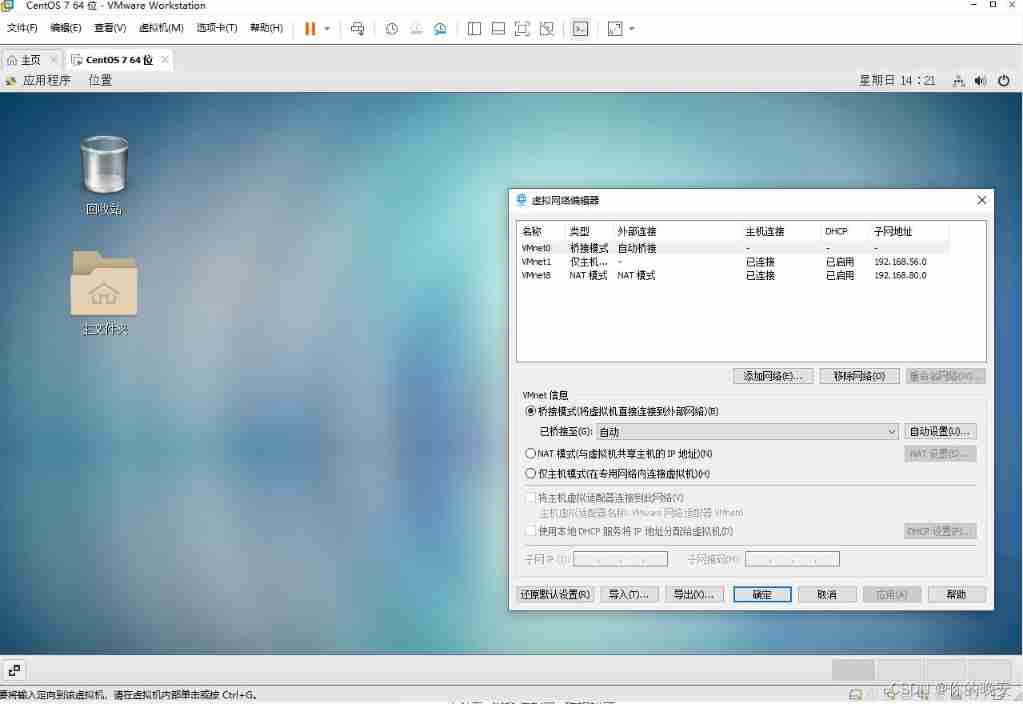
Virtual machine configuration network
如果不知道這4種緩存模式,敢說懂緩存嗎?
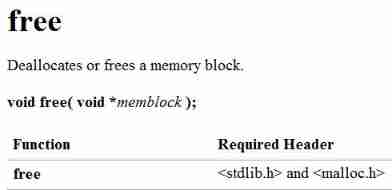
Dynamic memory management
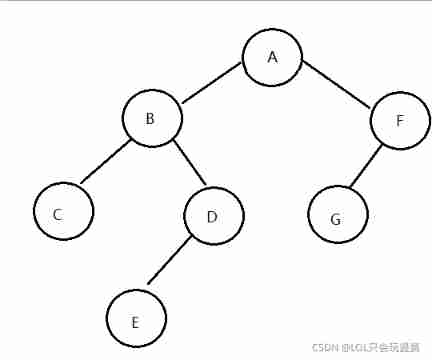
On binary tree (C language)

Doris / Clickhouse / Hudi, a phased summary in June
![[Galaxy Kirin V10] [server] iSCSI deployment](/img/60/13f43dc584c0768965d60811768948.jpg)
[Galaxy Kirin V10] [server] iSCSI deployment
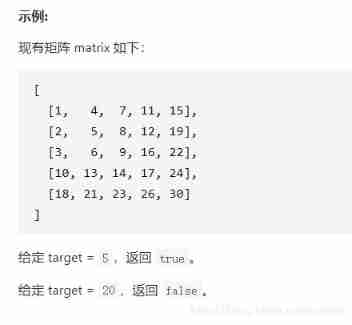
Jianzhi offer 04 (implemented in C language)
随机推荐
Es advanced series - 1 JVM memory allocation
Remove linked list elements
C language structure to realize simple address book
Use C to extract all text in PDF files (support.Net core)
Sword finger offer 31 Stack push in and pop-up sequence
[FAQ] summary of common causes and solutions of Huawei account service error 907135701
[Galaxy Kirin V10] [desktop] login system flash back
Collection of practical string functions
[Galaxy Kirin V10] [server] failed to start the network
Basic data types of MySQL
[test theory] test process management
[test theory] test the dimension of professional ability
Huge number (C language)
[Galaxy Kirin V10] [server] NUMA Technology
Development guidance document of CMDB
/*Write a loop to output the elements of the list container in reverse order*/
Pod management
Sword finger offer 05 (implemented in C language)
The most detailed teaching -- realize win10 multi-user remote login to intranet machine at the same time -- win10+frp+rdpwrap+ Alibaba cloud server
Hidden C2 tunnel -- use of icmpsh of ICMP
